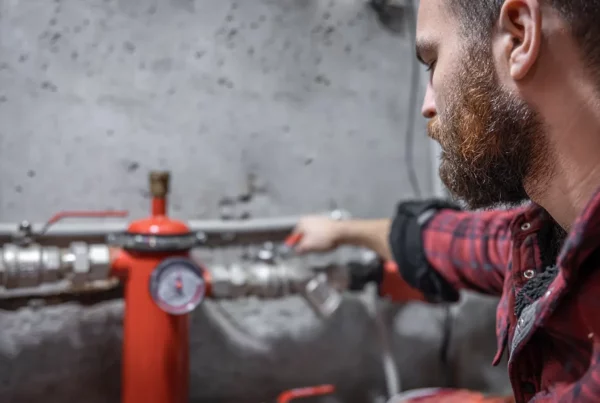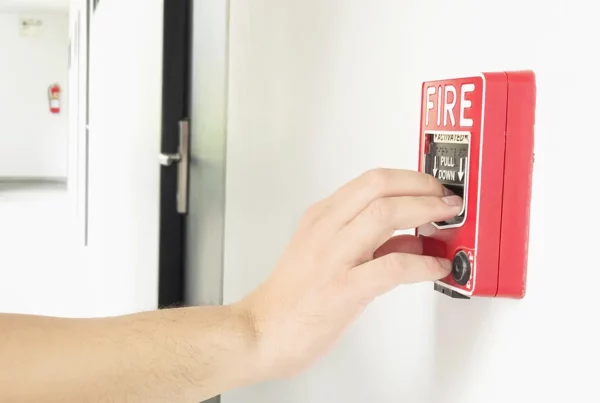
As a commercial electrician, ensuring electrical safety in buildings is of utmost importance. One of the critical aspects of maintaining electrical safety is understanding the National Fire Protection Association (NFPA) and inspection reports. The NFPA is a non-profit organization that develops and publishes codes and standards related to fire, electrical, and life safety. On the other hand, inspection reports are necessary documents that help assess the electrical system’s safety and compliance with the relevant codes and standards.
This guide will delve deeper into the NFPA and inspection reports, discussing their importance in commercial electrical installations. We will explore the role of NFPA in setting electrical safety standards and the relevance of inspection reports in ensuring the safety and compliance of electrical systems in commercial buildings. We will also answer some frequently asked questions related to NFPA and inspection reports.
What is the NFPA?
The National Fire Protection Association (NFPA) is a non-profit organization that was established in 1896 to prevent fire and other related hazards. The association is headquartered in Quincy, Massachusetts, and has over 50,000 members, including professionals from various industries such as fire protection, building, electrical, and life safety.
NFPA is a global leader in developing and publishing codes and standards related to fire, electrical, and life safety. The association has over 300 codes and standards designed to reduce the risk of injury, death, and property damage caused by fires and electrical hazards.
One of the most widely recognized codes developed by NFPA is the National Electrical Code (NEC), also known as NFPA 70. This code establishes safety requirements for electrical installations, including wiring, grounding, and overcurrent protection. The NEC is updated every three years to reflect new technologies, emerging trends, and industry best practices.
The NEC, NFPA has several other codes and standards related to electrical safety, such as NFPA 70E (Standard for Electrical Safety in the Workplace) and NFPA 72 (National Fire Alarm and Signaling Code). It plays a crucial role in promoting electrical safety in commercial buildings, providing guidelines and standards that help ensure electrical systems’ safe installation, operation, and maintenance.
What are the Inspection Reports?
Inspection reports are an essential component of maintaining electrical safety in commercial buildings. These reports provide a detailed assessment of the electrical system’s safety and compliance with the relevant codes and standards. Inspection reports are typically performed by licensed and certified professionals with the expertise and equipment to assess the electrical system’s safety and compliance.
During an inspection, the licensed professional will thoroughly evaluate the electrical system, looking for any signs of wear and tear, damage, or non-compliance with the relevant codes and standards. They will also identify any potential hazards or safety concerns and provide recommendations for addressing them.
The frequency of electrical inspections varies depending on the building’s size, occupancy, and use. For example, commercial buildings may require more frequent inspections than residential buildings, especially those subject to heavy electrical loads, such as data centers or manufacturing plants.
Inspection reports are important because they help ensure the safety and compliance of the electrical system, protecting the building occupants from the risk of fire or electrical hazards. They are also a legal requirement in many jurisdictions, and failure to comply with inspection requirements may result in fines or other penalties.
Inspection reports are essential for commercial electricians and building owners to maintain electrical safety and compliance. By identifying potential hazards and safety concerns, and providing recommendations for addressing them, inspection reports help ensure that electrical systems operate safely and efficiently.
Why Are NFPA and Inspection Reports Needed?
The NFPA and inspection reports are necessary components of maintaining electrical safety in commercial buildings. The following are some reasons why:
• Ensuring Compliance with Standards: The NFPA develops codes and standards for various industries, including electrical, which are aimed at reducing the risk of injury, death, and property damage caused by fires and electrical hazards. Inspection reports help ensure that the electrical system is compliant with the relevant codes and standards.
• Reducing the Risk of Electrical Hazards: Electrical hazards are a significant cause of injuries and deaths in commercial buildings. NFPA codes and standards and inspection reports help identify potential hazards and safety concerns, reducing the risk of electrical accidents and fires.
• Protecting Building Occupants and Property: Electrical accidents and fires can cause significant property damage and even lead to loss of life. NFPA and inspection reports protect building occupants and property from harm by ensuring electrical safety and compliance.
• Legal Compliance: Many jurisdictions require regular electrical inspections and compliance with NFPA codes and standards. Failure to comply with inspection and safety requirements may result in fines or other penalties.
The NFPA and inspection reports are critical components of maintaining electrical safety in commercial buildings. By ensuring compliance with codes and standards, reducing the risk of electrical hazards, and protecting building occupants and property, they play a crucial role in promoting electrical safety in commercial settings.
Frequently Asked Questions (FAQs) about NFPA and Inspection Reports
Here are some frequently asked questions about NFPA and inspection reports:
1. What is the National Fire Protection Association (NFPA)?
The NFPA is a non-profit organization that develops and publishes codes and standards related to fire, electrical, and life safety. Their goal is to reduce the risk of injury, death, and property damage caused by fires and electrical hazards.
2. What is the purpose of electrical inspection reports?
Electrical inspection reports are essential tools for maintaining electrical safety in commercial buildings. They help identify potential hazards, safety concerns, and non-compliance with the relevant codes and standards, reducing the risk of electrical accidents and fires.
3. Who performs electrical inspections?
Electrical inspections are typically performed by licensed and certified professionals, such as electricians, who have the expertise and equipment to evaluate the electrical system’s safety and compliance.
4. How often should electrical inspections be performed?
The frequency of electrical inspections depends on the building’s size, occupancy, and use. Commercial buildings may require more frequent inspections than residential buildings, especially those that are subject to heavy electrical loads, such as data centers or manufacturing plants.
5. What are some common electrical hazards in commercial buildings?
Common electrical hazards in commercial buildings include overloaded circuits, improper wiring, electrical equipment with frayed cords or loose connections, and outdated electrical systems that do not meet current safety standards.
6. What are the consequences of non-compliance with NFPA codes and standards?
Non-compliance with NFPA codes and standards can result in fines, penalties, and legal liability in the event of an electrical accident or fire. It can also put building occupants and property at risk of harm.
The Role of Commercial Electricians in Ensuring Electrical Safety
Commercial electricians play a vital role in maintaining electrical safety in commercial buildings. Their expertise and training allow them to identify potential hazards and safety concerns, recommend solutions, and ensure that electrical systems are in compliance with relevant codes and standards.
Commercial electricians can provide a wide range of services, including installation, repair, and maintenance of electrical systems, as well as electrical inspections and assessments. They can also guide the best practices for maintaining electrical safety in commercial settings, such as properly using electrical equipment, identifying and addressing potential hazards, and ensuring compliance with relevant codes and standards.
Working with a licensed and certified commercial electrician can help ensure that your electrical system is safe, efficient, and compliant with the relevant codes and standards. Commercial electricians play a critical role in promoting electrical safety in commercial buildings by providing regular inspections and maintenance and identifying and addressing potential hazards and safety concerns.
The role of commercial electricians is essential in maintaining electrical safety in commercial buildings. Expert advice and services help reduce the risk of electrical hazards, protecting building occupants and property from harm.
Maintaining electrical safety in commercial buildings is crucial for protecting building occupants and property from harm. The National Fire Protection Association (NFPA) develops codes and standards for electrical safety, and inspection reports are essential for ensuring compliance with these standards. By working with licensed and certified commercial electricians, building owners can maintain their electrical systems and reduce the risk of electrical hazards and fires. Prioritizing electrical safety can protect building occupants and property, and ensure that your building is in compliance with relevant codes and standards. It is important to take electrical safety seriously and work with qualified professionals to ensure that your building’s electrical system is safe, efficient, and up to code.
Image by senivpetro on Freepik









